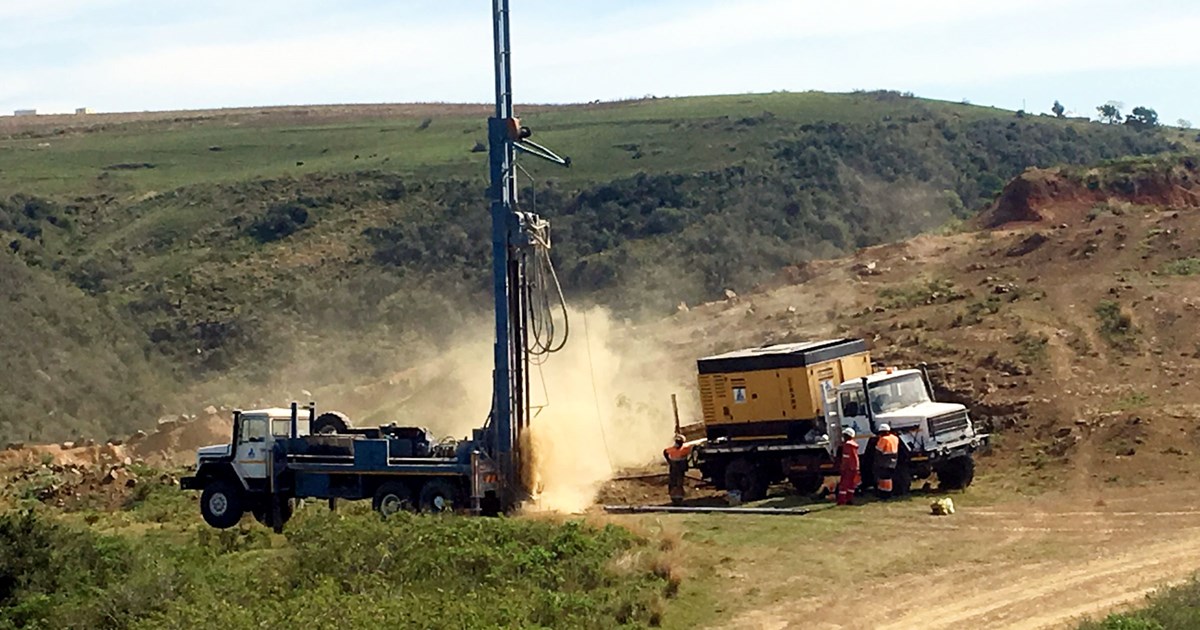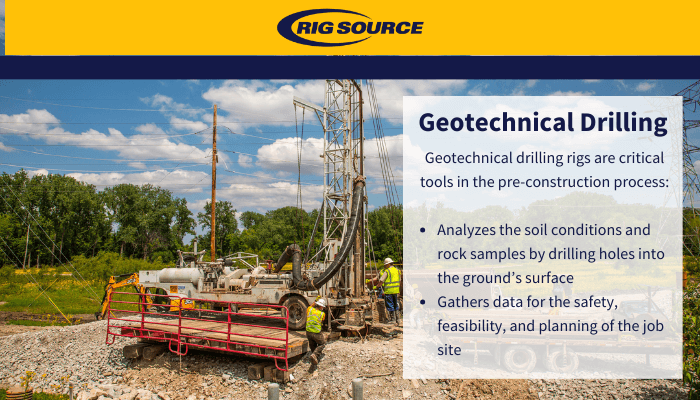Top Reasons to Employ a Geotechnical Specialist for Your Construction Tasks
Top Reasons to Employ a Geotechnical Specialist for Your Construction Tasks
Blog Article
The Relevance of Geotechnical Engineering in Resolving Environmental Challenges and Enhancing Construction Security
Geotechnical engineering offers as a keystone in the junction of ecological stewardship and building and construction safety, giving vital insights into the habits of dirt and rock under various conditions. This discipline not just addresses pressing ecological obstacles such as dirt disintegration and groundwater security yet also boosts the robustness of framework against all-natural risks. By applying strategic website investigations and customized mitigation procedures, geotechnical engineers play a crucial duty in guarding both human lives and environmental stability. Yet, the complexities of these challenges raise essential questions regarding the future instructions of this area and its effects for sustainable advancement.

Duty of Geotechnical Design
Geotechnical design plays an essential role in the design and building and construction of framework by attending to the habits of dirt and rock materials under various problems. This field of engineering is vital for recognizing the interaction between structures and the ground, which includes establishing the load-bearing capacity of dirt, analyzing stability, and forecasting possible settlement or failing.
Geotechnical designers are in charge of performing site examinations, which involve sampling and testing dirt and rock to gather information on their physical and chemical homes. This info is crucial for making foundations, retaining walls, and various other earth-retaining structures that guarantee security and long life. Additionally, geotechnical design informs the choice of suitable building approaches and products, thus reducing threats connected with dirt behavior.
In addition, the assimilation of geotechnical design principles right into metropolitan preparation and ecological administration is crucial for dealing with difficulties such as ground contamination and groundwater management. By recognizing geotechnical factors, engineers can develop lasting remedies that improve the durability of facilities against natural risks, while additionally promoting environmental stewardship. Inevitably, the function of geotechnical engineering is indispensable for accomplishing secure, durable, and eco mindful building methods.
Dirt Disintegration Mitigation
Soil erosion poses a substantial hazard to both environmental stability and infrastructure integrity, affecting approximately 24 billion lots of fertile soil shed annually worldwide. This phenomenon is worsened by variables such as deforestation, urbanization, and bad agricultural practices. Geotechnical engineering plays a critical duty in developing reliable soil erosion reduction methods that protect both the environment and construction projects.
One strategy entails the application of erosion control approaches such as plant life growing, which supports dirt through origin systems. In addition, the building and construction of retaining terraces and wall surfaces can successfully lower surface area overflow and protect prone locations from erosion. Appropriate drain design is additionally important; it decreases water accumulation and routes excess overflow far from important frameworks.
Additionally, geotechnical engineers utilize soil stabilization strategies, such as the application of geotextiles and biodegradable mats, to improve soil cohesion and stop destruction - geotechnical specialist. Routine monitoring and analysis of erosion-prone websites make it possible for prompt treatments, ensuring lasting sustainability. By incorporating these strategies, geotechnical design not just reduces the impacts of dirt disintegration yet likewise adds to the durability of infrastructure against ecological difficulties, ultimately cultivating a more secure and extra sustainable developed atmosphere
Groundwater Defense Methods
Groundwater offers as a crucial source for drinking water, agriculture, and industrial processes, making its defense important for environmental sustainability and public health. Efficient groundwater defense approaches are vital in minimizing contamination threats and guaranteeing the longevity of this source.

Routine monitoring of groundwater high quality click here to find out more is also crucial, making it possible for early detection of contamination sources and facilitating timely remediation efforts. Utilizing sophisticated innovations, such as geophysical studies and remote picking up, aids in identifying prospective risks to groundwater books.
Additionally, public education and stakeholder interaction are crucial, promoting community support for groundwater defense initiatives. geotechnical companies in south africa. By integrating governing procedures, technological developments, and area involvement, we can create a detailed framework that safeguards groundwater resources while advertising lasting advancement and building techniques
Landslide Danger Administration
Landslides present significant dangers to both human safety and facilities, making efficient danger monitoring strategies necessary. Geotechnical design plays a critical role in recognizing, assessing, and mitigating landslide risks. A thorough understanding of incline stability, dirt technicians, and hydrology is crucial for establishing reliable threat management plans.
The initial step in landslide danger management entails extensive website examinations, which include geological mapping and soil screening. These investigations help designers assess the potential for landslides by determining important factors such as incline angles, soil make-up, and water material. Using advanced innovations such as remote picking up and geophysical surveys can enhance the precision of these analyses.
When threats are recognized, appropriate mitigation steps can be applied. These may consist of design solutions such as maintaining walls, water drainage systems, and incline stablizing methods. Keeping track of systems ought to be developed to discover signs of ground movement and modifications in water degrees, allowing for aggressive interventions.

Enhancing Building And Construction Security
Construction sites often present a myriad of threats that can threaten worker security and job honesty. Geotechnical engineering plays a vital duty in boosting building safety by providing essential insights right into subsurface problems. With detailed soil and rock analysis, geotechnical designers can determine prospective dangers, such as soil instability, groundwater concerns, and seismic vulnerabilities, which may compromise the safety and security of construction activities.
Executing geotechnical services, such as proper foundation layout and the use of retaining structures, reduces these risks significantly. These options not just guarantee the security of the frameworks being built yet additionally create a more secure working environment for building employees.
Furthermore, promoting a culture of safety and security click over here with training and adherence to developed safety and security procedures better enhances construction site safety and security. By integrating geotechnical experience right into the preparation and implementation stages, building projects can attain higher safety standards, inevitably protecting workers and ensuring successful project conclusion.
Conclusion
Finally, geotechnical engineering serves as a crucial discipline in promoting and tackling environmental obstacles construction safety and security. Via efficient dirt erosion mitigation, groundwater protection approaches, and landslide risk monitoring, geotechnical designers add to the development of resistant framework. The integration of these techniques cultivates a more secure building and construction setting and improves the sustainability of civil engineering tasks. Ultimately, the competence of geotechnical designers is indispensable in protecting both natural deposits and human lives against prospective hazards.
Geotechnical engineering offers as a keystone in the intersection of ecological stewardship and construction safety, supplying essential insights right into the habits of dirt and rock under numerous problems. Geotechnical engineering notifies the selection of proper building techniques and materials, thus lessening threats connected with soil behavior.
Geotechnical engineering plays a critical role in developing efficient soil disintegration reduction strategies that safeguard both the atmosphere and building tasks.
In addition, explanation geotechnical engineers employ soil stablizing techniques, such as the application of geotextiles and biodegradable floor coverings, to boost dirt communication and avoid degradation. Through extensive soil and rock analysis, geotechnical designers can recognize possible dangers, such as soil instability, groundwater issues, and seismic susceptabilities, which may jeopardize the security of building and construction activities.
Report this page